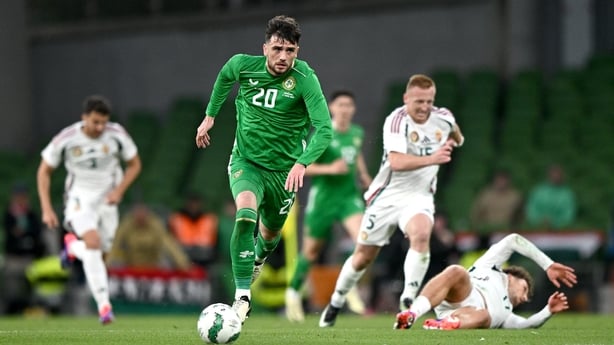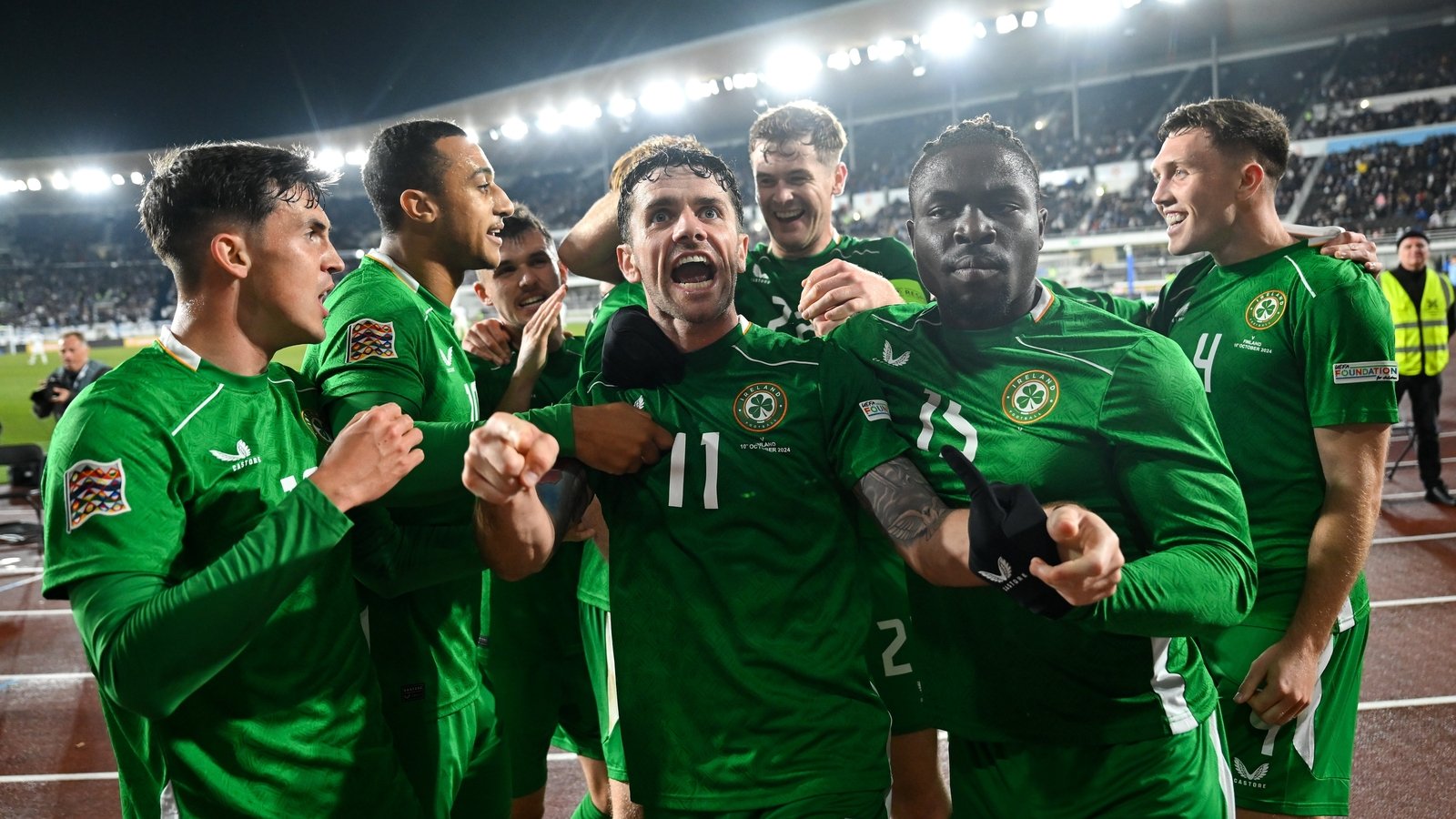When the World Cup kicks off on 11 June 2026 in Mexico, it will be approaching the 24th anniversary of Ireland’s last involvement in the great global tournament.
A penalty shoot-out defeat to Spain – in a game that Ireland should have won before time finally ran out on Mick McCarthy’s Roy Keane-less squad – was the last game the national team played on the world stage.
Thierry Henry’s handball, perhaps, the closest Ireland have come to qualifying since, during the 2010 qualification campaign, while recent attempts have seen the national team struggle and instead of bridging the gap, the chasm has widened.
FIFA may not have been keen on the idea of the 33-team World Cup as proposed by the FAI back after the handball fiasco, however, they have since expanded their thinking and have created a monster, with 48 teams set to sprawl the States, Canada and Mexico throughout the summer of ’26.
A whooping 16 more teams than the last edition in Qatar, and yet Ireland’s hopes only marginally improve as Europe’s tally rises from 13 to 16 places.
The European qualifying format could have been brutal for Ireland, but as things turned out, there is certainly scope for optimism going into this year’s campaign as Heimir Hallgrimsson’s side were named in a four-team group alongside the winners of Portugal and Denmark, Hungary and Armenia.
Only the 12 group winners are guaranteed their place at the World Cup, however, second spot gets you into a play-off format, which would require two wins to advance – there are also four play-off places from the Nations League path.
Ten years on since Ireland last qualified for a major tournament, Hallgrimsson’s side remain an outside bet to land one of the top two places, however, there is a sense that this new-look unit will be primed to give it a good shot in what will be a quick-fire six-match shoot-out from September to November.
Portugal or Denmark?
Based on recent history, Ireland will surely prefer to see Denmark come through the Nations League clash in March, rather than a Portugal side who are capable of tearing teams apart.
Of course, Ireland caused them all sorts of problems over the two games during the 2022 qualifiers, almost winning in the Algarve, before holding them scoreless in Dublin.
But when the two sides met last summer ahead of Portugal’s Euro 2024 campaign, there was such a gulf in class between the two sides, that Ireland were thankful only to lose 3-0.
Portugal, of course, have a habit of stumbling through tournaments, while the Ronaldo factor can lead to some of their best players overlooked and formations compromised to accommodate the special one, yet even still, could Ireland reasonably expect to get the better of the Iberian side over two matches?
Hallgrimsson said that he does not have a preference, however, Denmark would certainly present the Ireland manager with a much more straightforward task and two games where he could really attempt to put a definite game-plan in place to compete both home and away.
Denmark, of course, are the team that Ireland aspire to become, with their physicality, ball-playing ability, and national pride often allowing them to punch above their weight on the international scene.
However, it could be argued that they are a team in decline having failed to fire at the Euros, while their recent Nations League campaign was a bit of a mixed bag, losing twice to Spain, while beating Switzerland and Serbia at home.
The Danes are still harbouring hope that Christian Eriksen can inspire from midfield, while old timers like Yussuf Poulsen and Kasper Schmeichel are yet to be replaced by the next generation.
Can Hungary level the playing field?
Hungary are the second seeds in Ireland’s group, but they will also fancy their chances of landing top of the pile by the time the six-game schedule is completed.
A team, built around star midfielder, Liverpool’s Dominik Szoboszlai, that had high hopes after qualifying for Euro 2024, but were ultimately brought back down to earth by losing their first two games to Switzerland and Germany before squeezing past Scotland thanks to a late winner deep into injury time.
There is a Jekyll & Hyde aspect to this team, who continued their mixed form into their latest Nations League campaign, drawing with both Germany and Netherlands, while also losing 5-0 and 4-0 respectivey in their away encounters.
A team that Ireland will hold no fear for and have a recent friendly victory in Dublin to add to their confidence levels heading into the home and away fixtures.

Armenia – no room for error
In a group where the Ireland manager believes teams will take points off each other, there is no escaping the fact that Hallgrimsson’s side need all six points against Armenia to have any chance of competing for qualification.
Again Ireland will benefit from recent meetings with Armenia, which included a lack-lustre away defeat, however, that game was one of those June fixtures where the Ireland team had been idle for weeks ahead of the game, and Hallgrimsson’s side should have no issues in the autumn schedule.
September suits – Slow start should be avoided
If there is an optimium time for the Ireland team to perform, it is arguably the September window as all the players should be fully fit having come through a recent pre-season, while lack of game time will not have as much of an effect on the players, and more importantly, no end of season ennui, which has accounted for many poor performances in the June window of recent years.
Recent campaigns have almost ended before they had a chance to begin with early defeats, so Hallgrimsson will be eyeing a fast start to the campaign.
The manager spoke about his preference to take on the top seed as early as possible, however, they will play Hungary at home followed by an away trip to Armenia to begin their campaign.
Two very winnable games that could see Ireland move into the October window with maximum points, and more importantly, with the momentum and the confidence to take on either Portugal or Denmark in that first fixture of the October window.
By the end of that particular encounter, the campaign will already be at the half-way stage, and should Ireland see a return of six or even seven points entering the final three games, then perhaps there may be good reason to start eyeing those trans-Atlantic flight prices for the next year’s summer holidays.

